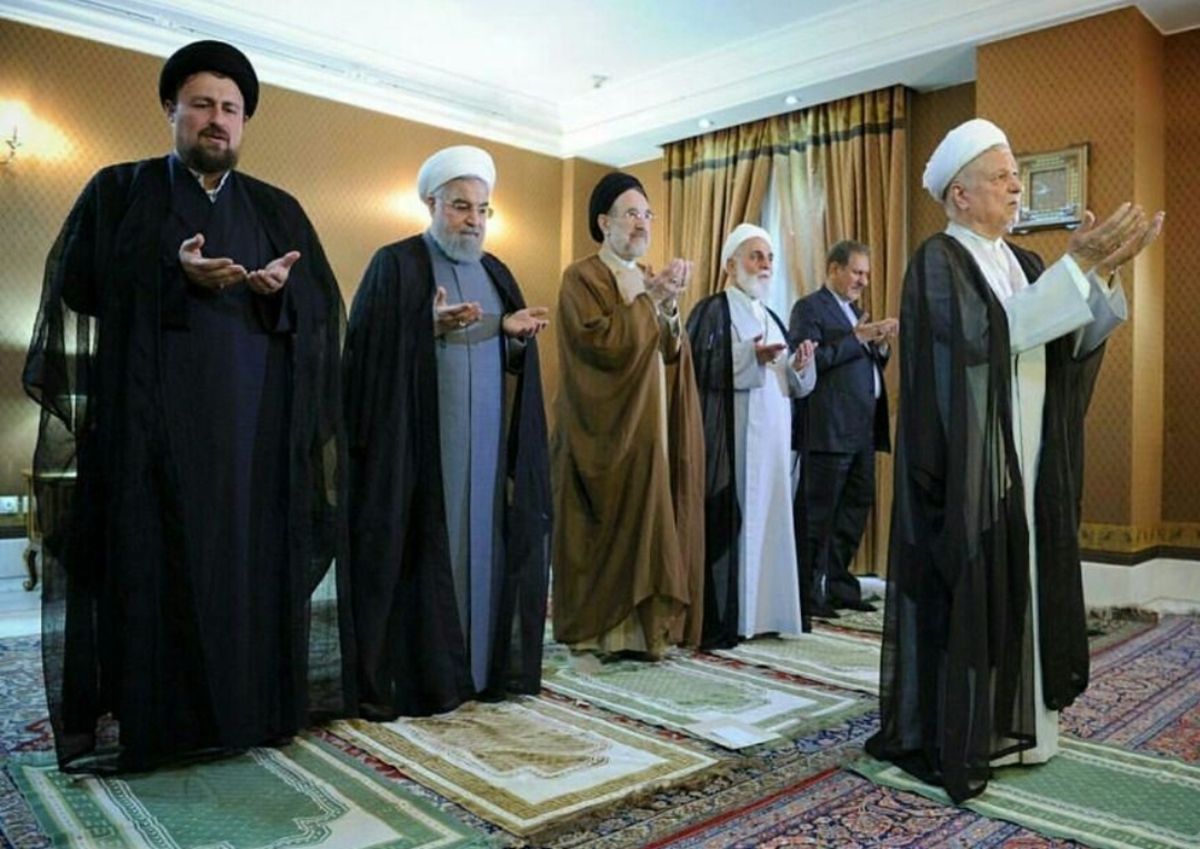For the second time in less than a week, Iranian media have disclosed hitherto unknown secrets about assassination attempts on the country's former presidents.
Although the coincidence could be the result of rivalry between various media outlets to come up with scoops, the question “Why now?” remains valid.
In the absence of official explanations about why these reports are being published now, some conspiracy theorists maintain that the publication of successive reports about the assassinations may be intended to scare regime insiders who occasionally criticize Khamenei and his hard-headed resistance to change while the country is in deep political and economic crisis.

Former president Akbar Hashemi Rafsanjani leading a prayer with Ayatollah Ruhollah Khomeini's grandson Hassan Khomeini (left), former presidents Hassan Rouhani (2nd left) and Mohammad Khatami (center), former parliament speaker Ali Akbar Nateq-Nouri (2nd right) and former vice president Eshaq Jahangiri (right) standing behind him
https://www.iranintl.com/en/202304202865
Intersting that Hassan Khomeini is here. Is he planned to replace Khamenei?
This is his background:
THE NEW REPUBLIC Khamenei vs. Khomeini by Ali Reza Eshraghi
Has Supreme Leader expedited his own fall by touching the third rail of Iranian politics?
Post Date August 20, 2009
Khomeini's son Ahmad was a strong critic of the Iranian regime after his father's death. Six years after Khamenei became supreme leader, Ahmad made a blunt speech expressing his views; a month later, he passed away suspiciously at age 49. (The official position is that Ahmad's death was caused by a heart attack, though independent Iranian journalists claim that he was likely assassinated by the Iranian intelligence service.)
Ahmad's children seem to share his distaste for Khamenei. Hassan, who is the most prominent of Khomeini's grandchildren and is in charge of his grandfather's mausoleum, met personally with Mousavi and supported his call to cancel the election results. Hassan also skipped Khamenei’s formal endorsement of Ahmadinejad—widely interpreted as a slight against the Supreme Leader. In February 2008, in an interview with weekly magazine Shahrvand-e-Emrooz (which was later shot down by the government), Hassan spoke out against military interference in politics. Soon after, a publication tied to Ahmadinejad attacked him in an article, “The Secret of Hassan Khomeini's Red Cheeks,” accusing him of corruption. According to daily newspaper Kargozaran, this was the first time in the history of the Islamic Republic that a member of Khomeini's Beit was publicly insulted. A few days later, the elderly Ayatollah Mohammad Reza Tavassoli, former head of Khomeini's office and Khomeini's personal secretary, reportedly died of a heart attack while complaining angrily about this insult.